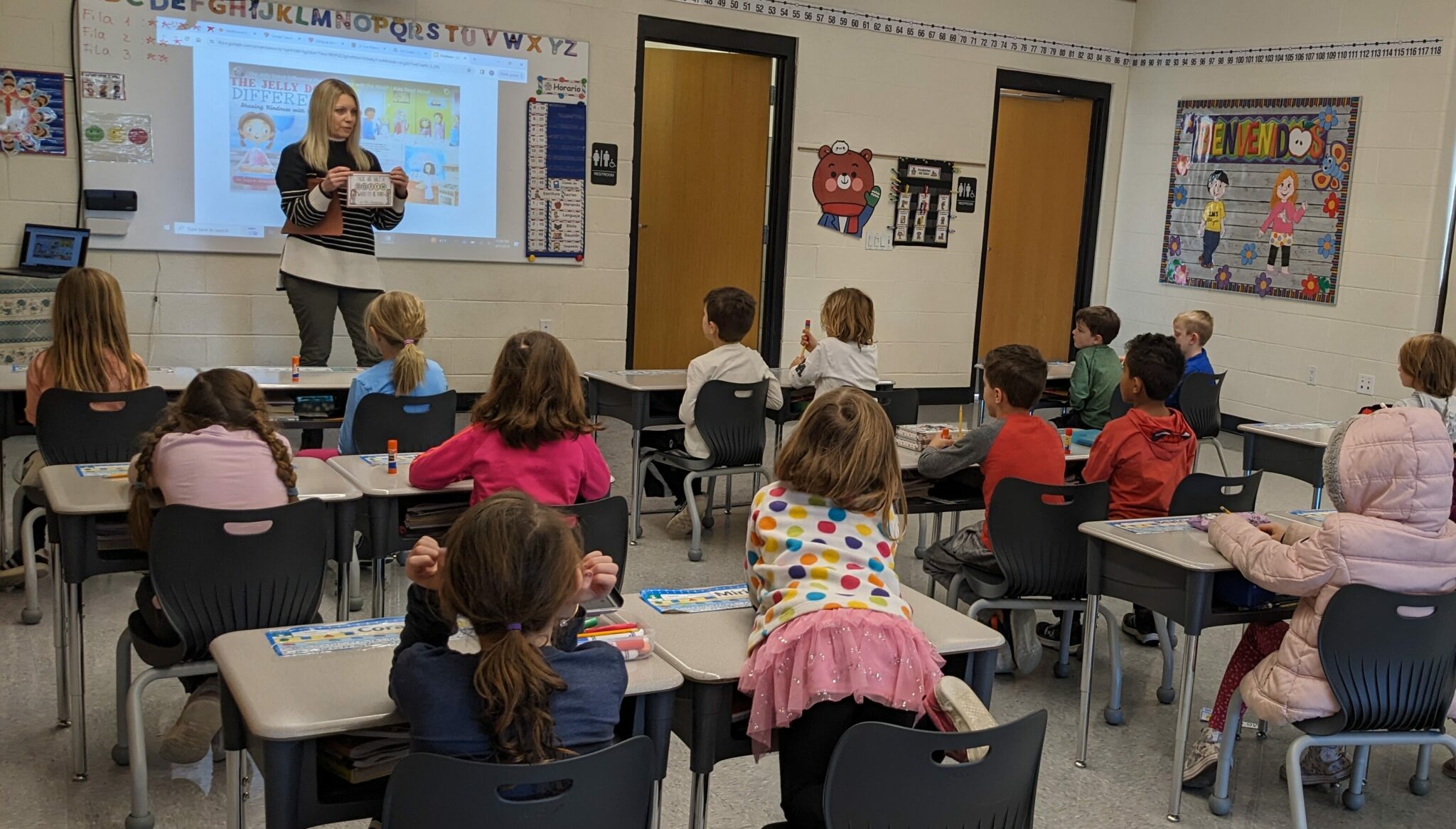Posted

Once a week our IU-13 counselor, Mrs. Brenneman teaches lessons to our kindergarten through fourth grade classes about feelings and interpersonal skills. In conjunction with LM’s schoolwide restorative practices plan, classroom teachers, and the other broader school themes, Mrs. Brenneman has developed monthly age appropriate lesson themes, such as:
- September – Feelings and coping skills
- October – Bullying prevention with lessons about being an “upstander”, tattling vs. telling, etc.
- November/December – Empathy, gratitude, compassion
- January – Growth mindset
- February – Kindness
- March – Self control
- April – Problem-solving
This learning is so important because it helps students in their character development and holistic formation as a person. In fact, research shows that these important topics positively influence students academic performance, behavior and attendance at school. It also reinforces LM’s core values of encouraging students to live compassionately and build bridges of peace. This can also be tied to scripture to treat others the way you want to be treated and to be kind and compassionate to one another, like Jesus exemplified to us.
Mrs. Brenneman leverages two different curriculum resources for her lessons. The Second STEP curriculum has lessons for social and academic success. This research-based curriculum includes songs, brain builder activities, worksheets and handouts, posters for the classroom, breathing exercises, and movement activities to fully engage students. All of these activities tie into Tier I of LM’s restorative practices plan, which provides community-building and peacebuilding strategies for all students, in order to prevent conflict and promote God’s shalom – peace with God, peace with others, peace with oneself, and peace with God’s creation.
Each lesson starts with a calming activity for students to practice. One of the activities is called “hot chocolate breathing” where students pretend to smell a cup of hot chocolate and then blow on and cool off the cup of hot chocolate to do some deep breathing and focus their bodies and brains to prepare for learning.
The Everyday Speech curriculum focuses on social and communication skills for students. The lesson themes are aligned with:
- Self Awareness – emotional regulation
- Self Management
- Social Awareness
- Relationship Skills
- Responsible Decision-Making
1st Grade – Kindness Donuts Lesson
In February, first graders had a lesson on kindness. Mrs. Brenneman shared a story about an elderly woman who was lonely and her neighbors made her some donuts, because it was a favorite treat of hers from her childhood and home country. They were showing her kindness.
Then students made their own box of “Kindness Donuts”. They colored the cover of the donut box that said, “There are half a dozen ways to be kind”. They wrote on the inside of their box six ways they could show kindness to someone, representing one per donut (half a dozen). Some of those included giving someone a hug, playing with someone, taking turns, listening, and saying thank you.
This provided a tangible way for students to reflect on what they learned and have something to take home with them to remember how to be kind to others.
March Lessons – Self Control
Lessons in March focused on self control, as a reminder that we need to continue to be aware of the daily choices we make with our words and actions. In some classes they practiced self-control through fun activities like, freeze dance or Simon Says to use their “pause power.” Other classrooms were working to differentiate “think it” thoughts versus “say it” words.
Mrs. Brenneman shares monthly tips or resources with parents that they could also use at home to reinforce these important life skills. We love how Mrs. Brenneman integrates parents into the learning at home so that they are partners in education to help students succeed in their development.
